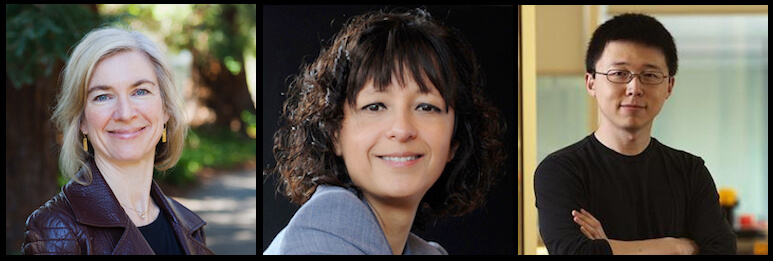Newsletter Signup - Under Article / In Page
"*" indicates required fields
The US Patent Office has ruled that the Broad Institute’s CRISPR patents do not interfere with those from UC Berkeley. While this might sound like everybody wins, it’s actually a loss for Charpentier and the CRISPR Therapeutics team.
CRISPR has been hailed as the ‘scientific discovery of the century’. This molecular technique could be used to cut and replace virtually any gene with much less effort than any of its predecessors, TALEN and zinc finger proteins. Its potential in therapeutic applications has led investors to pour money into CRISPR companies, making their patents worth billions. However, the technology’s ownership has been far from clear since two parties have been fiercely fighting over its IP.
While the Broad Institute’s CRISPR patent was limited to eukaryotic organisms, UC Berkeley’s did not specify this particular application of CRISPR. The US Patent Office has now determined that the extension of UC Berkeley’s patent to applications in eukaryotic organisms is not obvious. Therefore, there’s no interference between the patents and both parties get to keep their patents, which overlap regarding the use of the technology in its most lucrative application: therapeutics.
Investors have perceived the decision as a win for Editas Medicine, whose stock has jumped up by 25% since the announcement, whereas CRISPR Therapeutics and Intellia’s went dramatically down and are now starting to recover after a few hours.

The whole process has proved expensive for both parties. UC Berkeley has spent over $5M in legal fees, covered by its licensee Caribou Biosciences. Meanwhile, the Broad Institute’s sum has reached $15M. And the war might not be over yet: Berkeley can still appeal the decision to stop the competition from the Broad and its licensees.
Berkeley has been granted two patents in the UK despite observations filed by third parties including the Broad. Patent applications covering other 80 jurisdictions in Europe and worldwide are now being evaluated. The main players in CRISPR have commented that Broad’s European patents have been opposed by numerous parties and their validity is being challenged at the European Patent Office.
Meanwhile, China is ahead of everyone else as the first to start clinical trials with CRISPR technology. Although no data from the use of CRISPR in humans is available yet, the technology has attracted massive investment and has led the whole world to follow the patent war for its IP. Some would argue that investors are purely gambling here…
Unraveling the Story
The story behind this long-awaited decision is complex, so let’s start from the beginning. Jennifer Doudna at UC Berkeley and her collaborator Emmanuelle Charpentier, then at the University of Vienna, were the first to file a patent application for CRISPR in May 2012. Feng Zhang at the Broad Institute and a collaborator from Harvard Medical School filed a patent in December that year.
A number of companies have been involved in the CRISPR patent war. Previous to the patent applications, in 2011, Doudna co-founded Caribou Biosciences to commercialize CRISPR applications. While the patents were under review, in 2013, Charpentier co-founded CRISPR Therapeutics, based in Boston and Basel. That same year, Doudna and Zhang were among the founders of Editas, but after their disagreements, Doudna cut ties and founded Intellia Therapeutics in 2014. On top of that, the companies have licensed their CRISPR technology to numerous partners each.

Both parties were awarded their patents in 2014, and UC Berkeley decided to start an interference proceeding to invalidate Broad’s claim to CRISPR’s IP on the basis that Doudna and Charpentier had developed the technology and applied for a CRISPR patent earlier than Zhang.
The Broad’s argument is that its patent specified the application of CRISPR to eukaryotic organisms, whereas Berkeley’s established a broad use of the technology of both “non-cellular and cellular applications”. The interference proceeding, which started in January 2016, boiled down to determining whether the extension of Berkeley’s CRISPR patent to applications in eukaryotic organisms was obvious or not.
The final decision of the jury argues that this extension was not obvious, which means that both parties get to keep their patents. Their IP then overlaps regarding therapeutic applications of CRISPR, which are expected to be valued at billions.
Images from Evlakhov Valeriy; Google Finance; CC2.0, Knaw /Flickr






